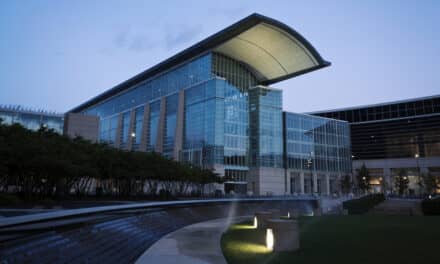The Radiological Society of North America (RSNA) will host a special half-day event to launch phase 1 of “Building Connections Across the Americas: Addressing Access to Radiology” on Wednesday, November 30, during the society’s 108th Scientific Assembly and Annual Meeting at McCormick Place in Chicago.
Earlier this year, RSNA announced the “Building Connections Across the Americas: Addressing Access to Radiology” program with the aim of cultivating global partnerships and improving health equity, access, safety and patient care in South, Central, and North America.
Funded by the U.S. Department of Energy’s National Nuclear Security Administration (NNSA), the program has three events planned over the coming year in different regions. The aim of the series is to discuss the major challenges in each area and find sustainable solutions. Leading radiologists, physicists, diplomats, educators, hospital administrators and industry personnel from all over the world will participate as both audience members and key collaborators.
This first event is a seminar focusing on issues of healthcare access, equity, and radiation safety throughout the Americas.
“During times when connectivity and collaborative partnerships are more important than ever for the practice of radiology, RSNA’s Committee on International Radiology Education (CIRE) is taking this opportunity to build long-lasting and solid bridges between institutions, industry and radiologists across the Americas,” says radiologist Juliana M. Bueno, MD, chair of the Global Learning Center (GLC) subcommittee of CIRE.
RSNA board liaison for International Affairs, Umar Mahmood, MD, PhD, will provide a brief welcome, followed by the keynote address, “Bridging Gaps in Radiology Care Across the Americas,” delivered by Carlos H. Torres, MD, FRCPC.
The seminar will have three areas of focus. For the first topic, Radiology Care for All, moderated by Jorge A. Vidal, M.D., Christian P. Perez, MD, will deliver the presentation “Rural Areas/Areas of Limited Access.” He will be followed by RSNA board member, Jinel Scott, M.D., speaking on “Racial Disparities in Access to New Mammography Technology” and Marilyn A. Roubidoux, M.D., FACR, FSBI, discussing “Improved Access in Indigenous Populations.”
The second topic, Moving Forward: Education, Safety and Innovation, will be moderated by Jenny T. Bencardino, M.D. Presentations include “Educating Future Generations” by Guillermo Elizondo-Riojas, MD, PhD, “Building Upon Common Protocols and Sharing Best Practices” by Whitney Coulor-Rellum, MSc, and “Industry Viewpoint: Driving safety measures for technicians and patients through evolving technology and innovation” by Luiz Verzegnassi, president and CEO of GE Healthcare Services.
Lastly, Successes and Challenges in Global Health Equity: Case Studies, moderated by Bueno, will feature “Utilization of Funding and Technology in Haiti” by Jennifer L. Nicholas, MD, MHA, and Ernst Garçon, MD, “Rotary Clubs Projects in Guatemala” by Carlos Früm and “RSNA Global Learning Center: Ecuador” by Elizabeth Zamora, MD. Each section will be followed by a panel discussion.
“‘Building Connections Across the Americas’ will address relevant aspects of the practice of radiology and education in resource-limited areas, aiming to promote networking, knowledge-sharing, and optimal resource allocation to improve patient care,” Bueno says. “Aligned with the educational mission of the RSNA, this session is an outstanding opportunity for radiologists around the world to learn about the efforts our organization has in place to build connections and bring resources closer to where they are needed.”
The program will convene thought leaders through two more events in 2023: in South America at the RSNA GLC site in Ecuador, and in Brazil, during Jornada Paulista de Radiologia (JPR 2023), hosted by the Sociedade Paulista de Radiologia e Diagnóstico por Imagem.
The three phases of the program seek to build capacity and address deficiencies and barriers in radiology education and practice across the Americas, as well as promote the application of peaceful use standards for improved patient care. The networking opportunities provided will foster relationships between government health representatives and radiology practitioners in the region.






